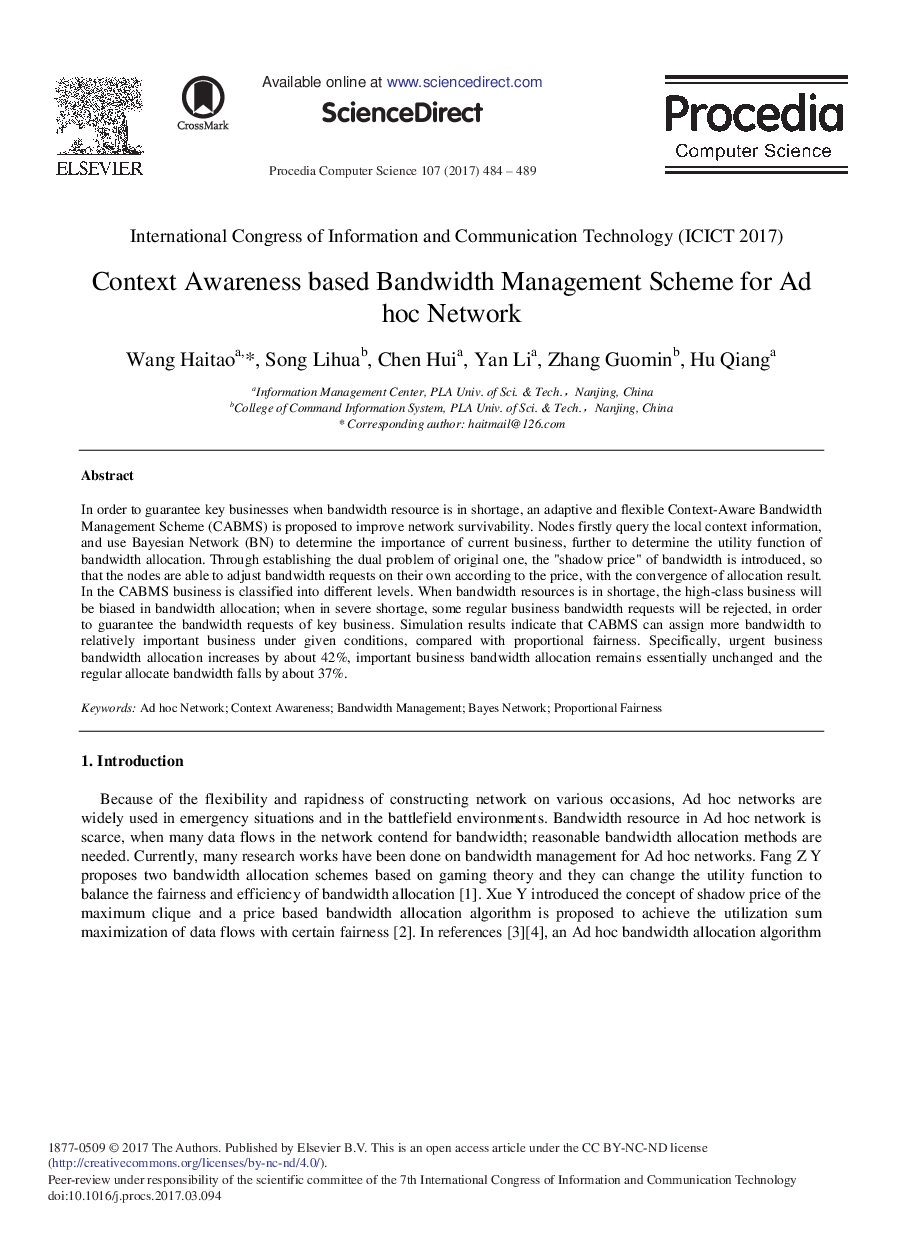| Article ID | Journal | Published Year | Pages | File Type |
|---|---|---|---|---|
| 4961110 | Procedia Computer Science | 2017 | 6 Pages |
In order to guarantee key businesses when bandwidth resource is in shortage, an adaptive and flexible Context-Aware Bandwidth Management Scheme (CABMS) is proposed to improve network survivability. Nodes firstly query the local context information, and use Bayesian Network (BN) to determine the importance of current business, further to determine the utility function of bandwidth allocation. Through establishing the dual problem of original one, the “shadow price” of bandwidth is introduced, so that the nodes are able to adjust bandwidth requests on their own according to the price, with the convergence of allocation result. In the CABMS business is classified into different levels. When bandwidth resources is in shortage, the high-class business will be biased in bandwidth allocation; when in severe shortage, some regular business bandwidth requests will be rejected, in order to guarantee the bandwidth requests of key business. Simulation results indicate that CABMS can assign more bandwidth to relatively important business under given conditions, compared with proportional fairness. Specifically, urgent business bandwidth allocation increases by about 42%, important business bandwidth allocation remains essentially unchanged and the regular allocate bandwidth falls by about 37%.
